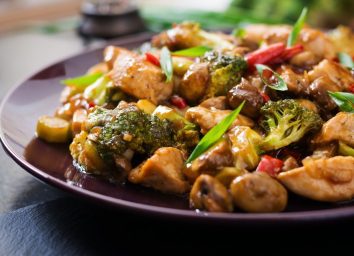22 Difficult Eating Dilemmas—Solved!
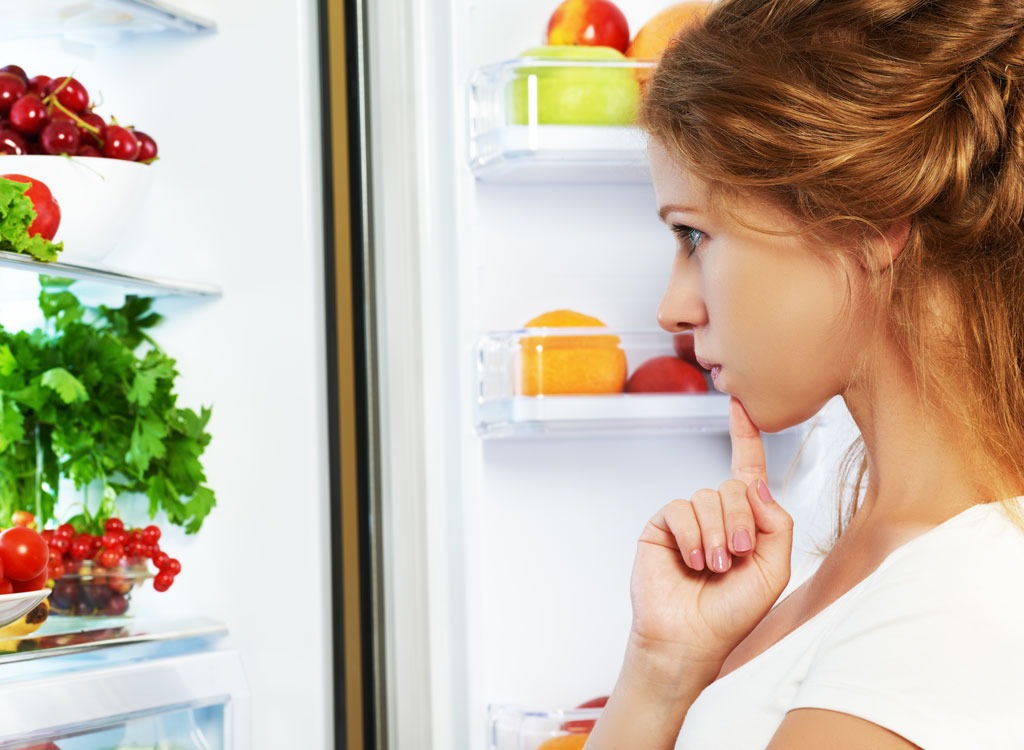
Within an hour of waking up, you’ll likely decide what to eat for breakfast, what to put in your coffee or tea, and what to pack for lunch. And that’s all before you’ve left the house. During an average day, each of us makes about 200 food choices, according to Cornell researchers. Sure, some of the decisions we make are simple ones (Should I bring lunch or buy it?), but then there are others that use up a bit of brain power (Should I add flax seeds or chia to my oatmeal?)—even for us. And considering each ETNT staffer reads and writes about nutrition for 40+ hours per week, that’s saying a lot.
To help you cut through the noise and make better, healthier decisions along your weight loss journey, we brewed up a collection of hard-to-answer everyday questions from staffers and readers and brought them to a team of top-notch nutritionists to help clear up the confusion! Here’s what they had to say…
1

Q: Does it matter if I eat quick-cooking oats instead of the slow-cooking kind? Aren’t they still healthier than boxed cereal?
“It depends on the boxed cereal, but generally speaking, unflavored quick cooking oats are often still healthier than boxed cereal—especially if you top it with something that has healthy fat or protein like almonds or unsweetened coconut shreds to slow its absorption,” says Isabel Smith, MS, RD, CDN. To learn more about the different types of oatmeal, check out our exclusive report All the Different Types of Oatmeal—Explained!
2

Q: How can I stick to my diet when I dine with friends without drawing attention to myself?
Simple. “Just don’t talk about it,” says Ilyse Schapiro MS, RD. “People love to talk about the latest diets and trends, but if you don’t want to draw attention to yourself, don’t discuss what you’re doing. Further, always check out the menu ahead of time and decide what you’re going to order. I like to start with a mixed salad with the dressing on the side, and then I typically choose a chicken or fish dish and ask for double vegetables instead of a starch. A lot of people have diet restrictions these days, so it shouldn’t raise any red flags.” Also, you might want to eat a small high protein snack before you go out for dinner, like carrots and hummus or a handful of nuts so you aren’t starving. This way you can order appropriately and not be tempted by things like the bread basket.
3
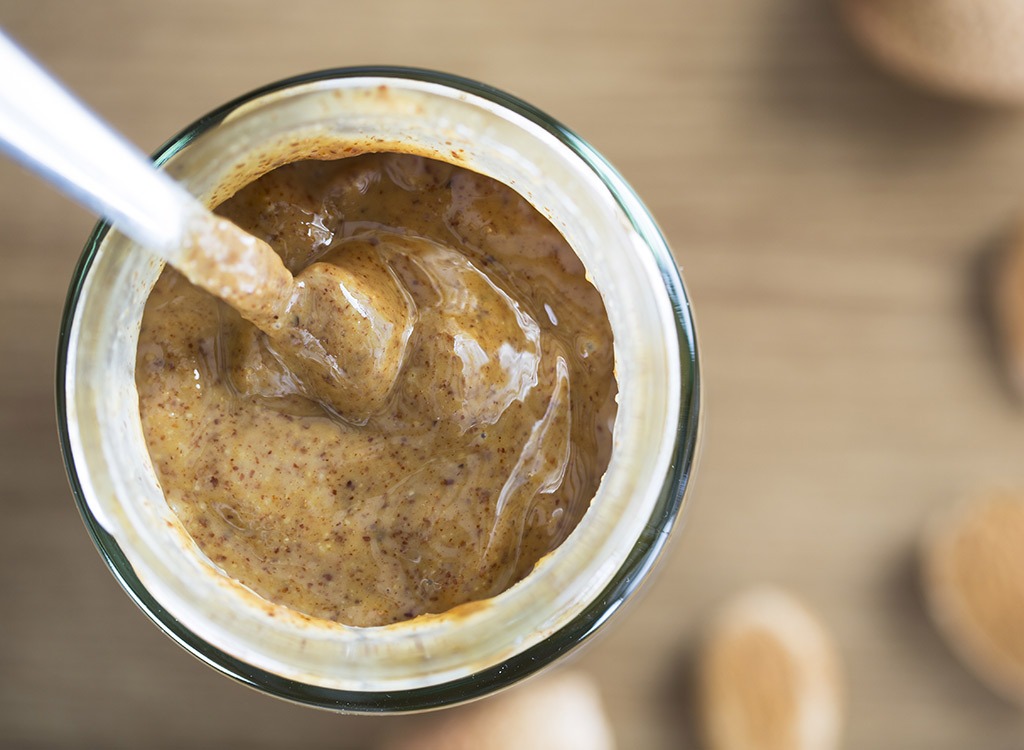
Q: Should I be using almond or peanut butter?
“More often than not, almond butter is free of partially and fully hydrogenated oils (trans fats) and added sugars. However, when both peanut and almond butter are made with nothing more than nuts and salt for flavor, then they are pretty on par nutritionally,” explains Smith. The bottom line: Go with what you enjoy best, and pick a container that’s free of yucky additives.
Eat This! Tip
To avoid tastebud fatigue and ensure you’re consuming a plethora of nutrients, buy a different nut butter each time you’re at the store. Almond butter one week, peanut the next, and maybe pecan or cashew butter after that!
4

Q: Is it better to consume extra calories from sugar or use an artificial or alternative sweetener?
“Your best best is to use an alternative sweetener like stevia or coconut nectar. But if that’s not an option, go for a little bit of sugar. Your last resort should be to use an artificial sweetener,” says Amy Shapiro MS, RD, CDN. Though they are free of calories, some research has found an association between fake sugars and weight gain—not weight loss. Eek!
5
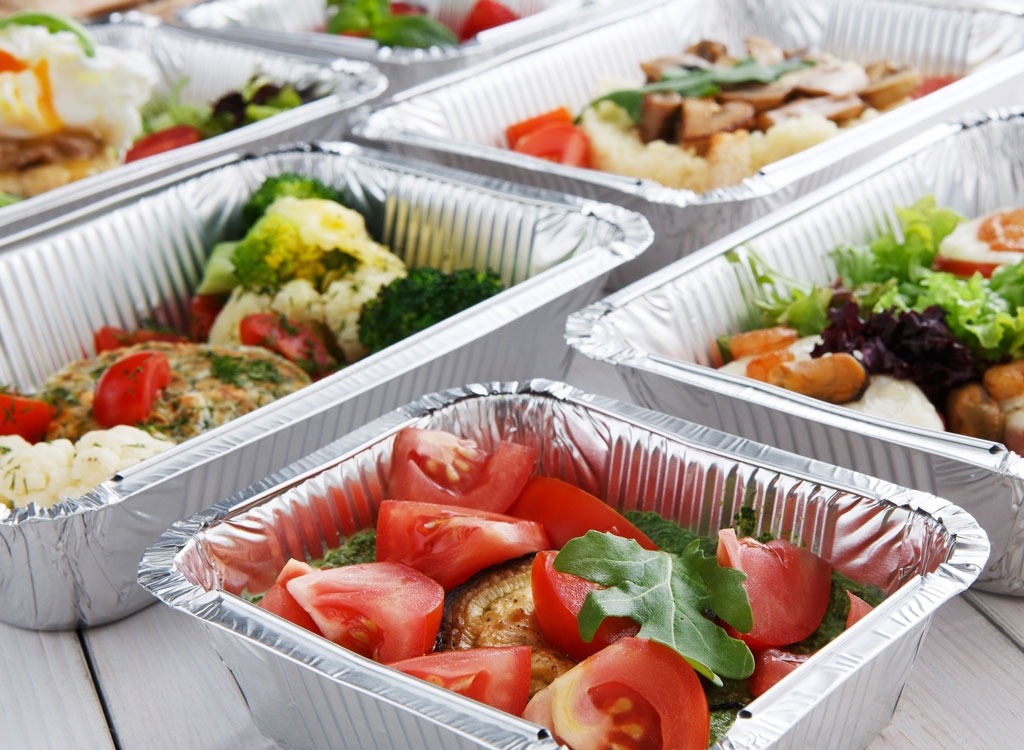
Q: I only have time to cook a few times per week. That said, which is the healthiest meal to order in? Breakfast, lunch, or dinner?
“Since breakfast is so affordable to make yourself, lunch or dinner are more worth your money if you’re ordering in. Plus, they’re more time consuming and difficult to prepare. Stick to protein, veggies and whole grains, and ask for sauce on the side to ensure a healthy meal,” suggests Shapiro. Whether you’re partial to Chinese, sushi, pizza, or something else, we’ve got the lowdown on the best and worst takeout orders for your waistline in our exclusive report, Eat This, Not That! for Healthy Takeout Food.
6

Q: Which is better to put in my smoothies and oatmeal? Chia seeds or flax seeds?
Chia seeds. “They are less sensitive than flax seeds, which need to be stored in a cold dark place (to prevent rancidity) and ground up in order for our body to absorb the nutrients,” explains Shapiro. “Chia seeds are very stable and can be consumed as is. Additionally, chia absorbs water, causing it to grow in our bellies and keeping us full longer. Chia also contains tons of nutrients including calcium, healthy fats, protein, and fiber. Flax has some of those, too, but in lesser quantities.”
7
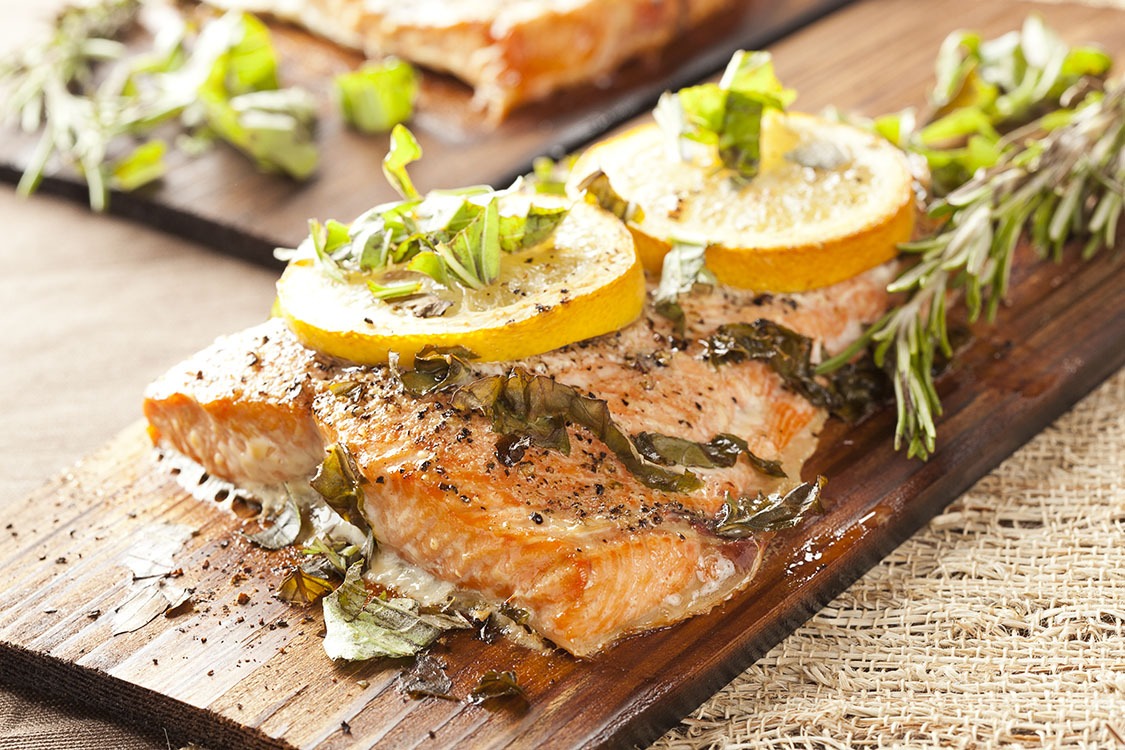
Q: I hear so much about fish fraud these days. Is it okay to order it out at a restaurant? How can I ensure the fish I’m ordering is actually what I asked for?
“Unfortunately, there really isn’t any way to ensure that the fish you think you’re getting is actually what ends up on your plate. I usually recommend that people buy wild fish at home so when they dine out it’s less of a worry,” says Smith. “Assuming most of us eat at home more often than out, this strategy will ensure the majority of the fish in your diet is the good stuff.” To learn more about the best fish for your health and waistline, check out our exclusive report, Every Popular Fish—Ranked for Nutritional Benefits!
8

Q: Should I spend my money on organic eggs, organic meat, or organic milk? I don’t have the cash to spring for all.
“Organic milk, eggs, beef, and poultry products are recommended since many cattle and chickens are given hormones. If they are too expensive or unavailable in your grocery store, look for hormone-free, cage-free, or antibiotic-free varieties,” suggest Schapiro. To save even more cash, Schapiro recommends buying generic organic milk, which is just as wholesome as the name brands.
9
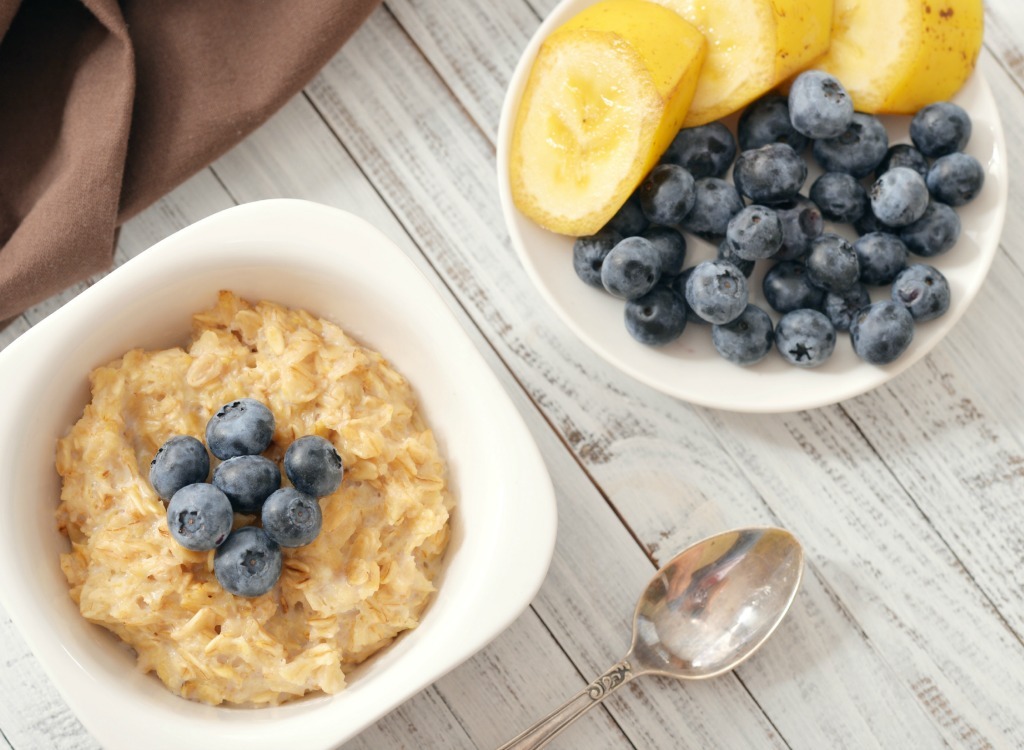
Q: What should I be adding to my daily cup of coffee? Cream? Whole milk? Skim? Something else?
“Use whatever you can use less of,” says Shapiro. “Anything you add to your coffee adds calories that many people forget about. So if you like your coffee light, then use cream or whole milk because you’ll need a lot less to reach your desired color and taste. You’d need a lot more skim to meet that color requirement, which in the end equals more calories and carbs. I also recommend almond milk or coconut milk because they are lower in overall calories but rich in healthy fat (about 5 grams per cup).” And remember: Always ask for unsweetened to avoid added sugar! You don’t want your coffee to become dessert—like these 20 Coffee Drinks with More Sugar Than a Can of Coke.
10
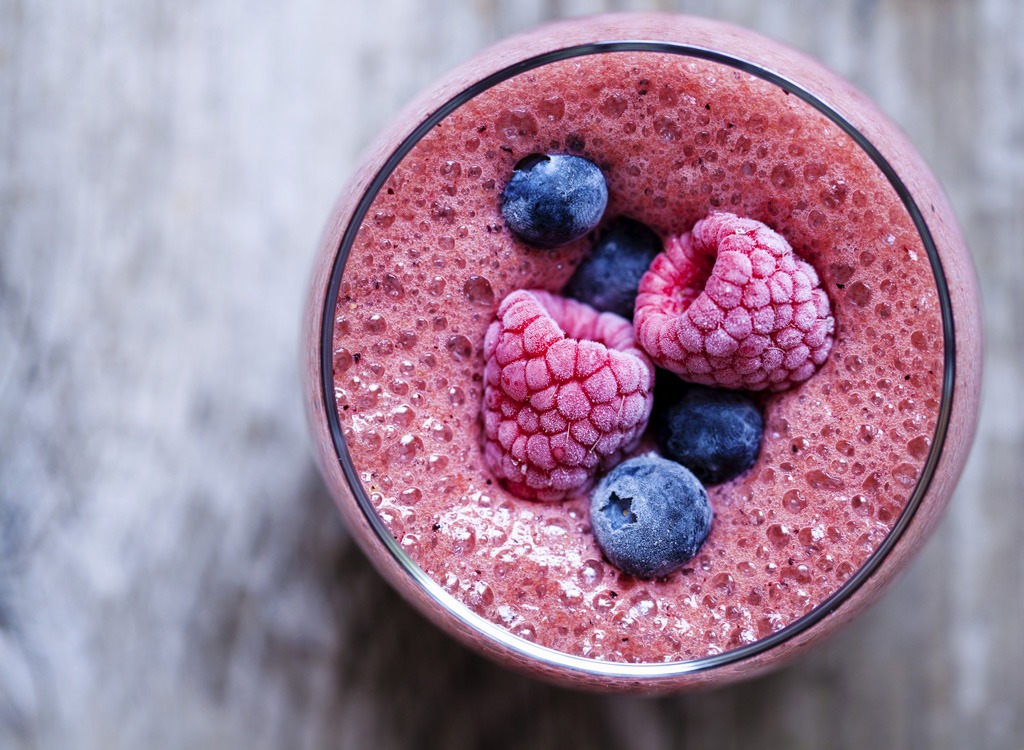
Q: What’s healthier: A smoothie or a fresh juice?
“If your smoothie is made with the whole fruit (fresh or frozen) and not fruit juice, the smoothie is healthier, hands down,” says Christine M. Palumbo, RDN, FAND. The reason: It serves up far more fiber and nutrients than a juice. “On the flip side, however, if the smoothie is made with fruit juice and added sweeteners, then the 100% fresh fruit juice is better,” she adds.
11
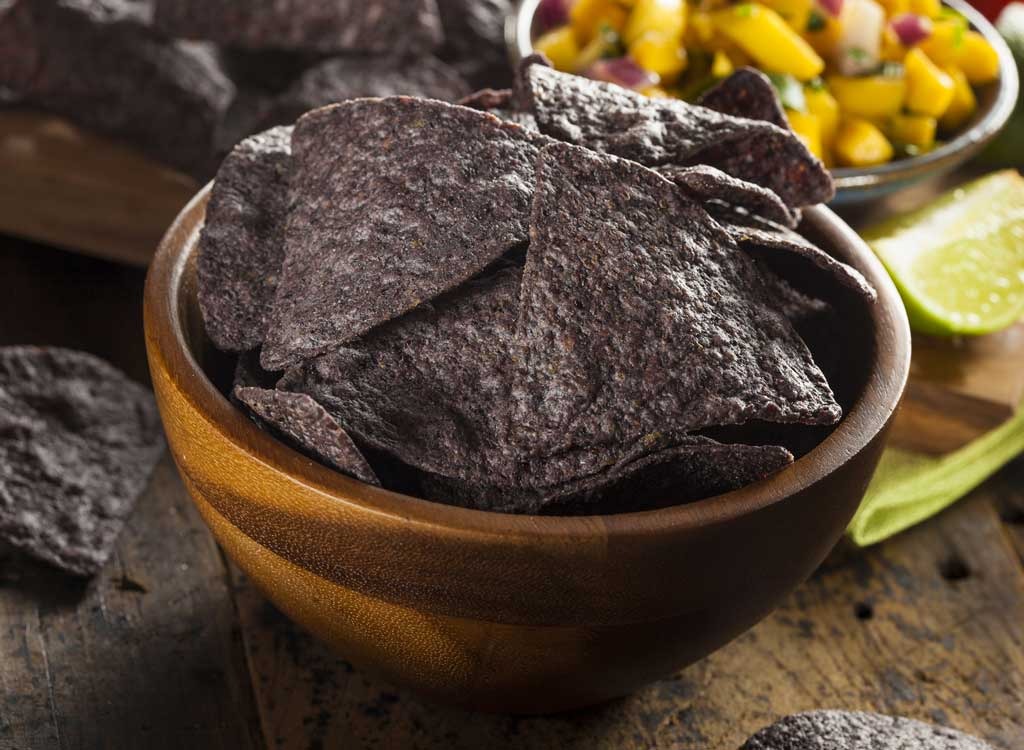
Q: Is it better to eat something high in salt or high in sugar? Sometimes when I’m dining out it seems I have to pick between the two.
“Neither is great. But generally, I find that high-salt food can be more satisfying and easier to eat in moderation than sugary foods,” Smith tells us.
12
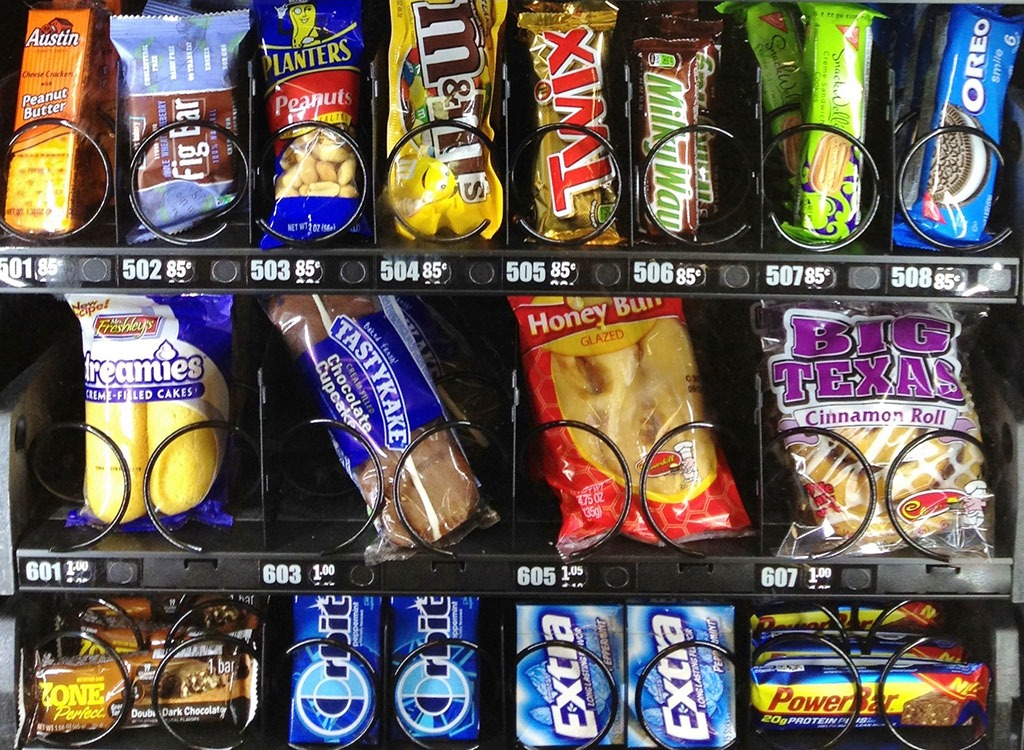
Q: When you have no other choice, is it better to skip a meal or eat an unhealthy one?
“I’m a big believer in eating on a regular schedule,” says Smith. “That said, I’d say eating a less-than-perfect meal is better than getting into the habit of skipping meals. Consistent, healthy habits are key to making a lasting change. Plus, when you ditch lunch or dinner (one of the 26 Bad Habits That Make You Fat), blood sugar levels plummet, making you more apt to overeat and gain weight over time.”
13
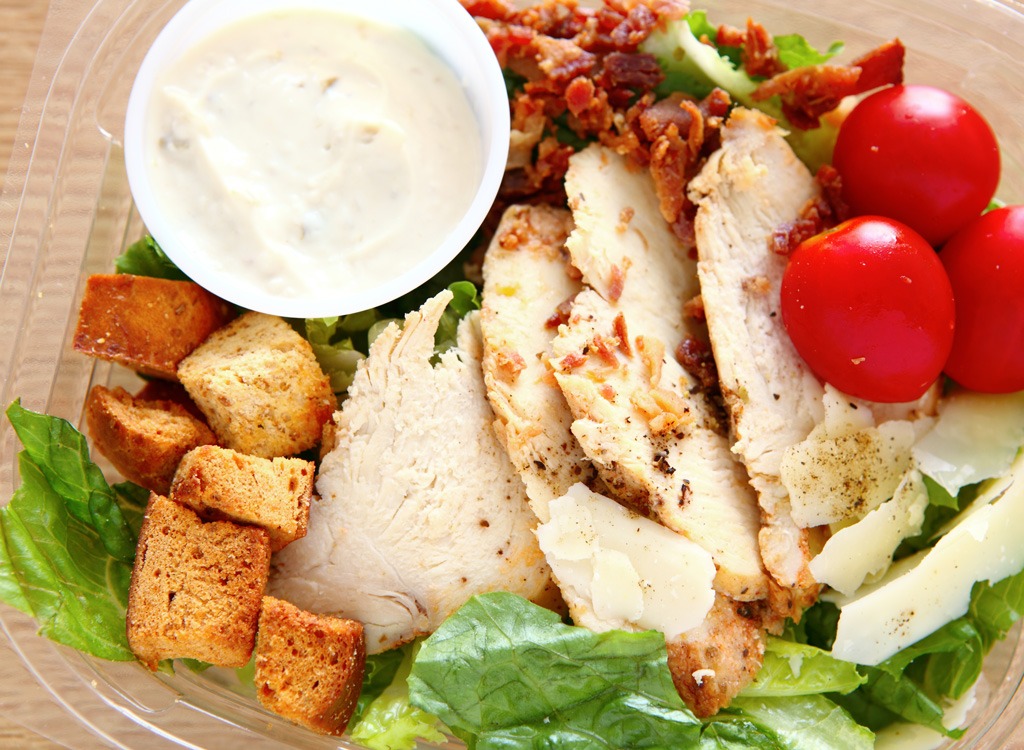
Q: Which is better for you: Fat-free salad dressing or regular salad dressing?
“Regular salad dressing trumps fat-free, so long as you stick to the non-creamy varieties,” says Shapiro. The reason: Fat-free salad dressing has tons of sugar to make up for the lack of fat. “Use real dressing but don’t douse your greens in the stuff. That’s the key,” she adds.
14
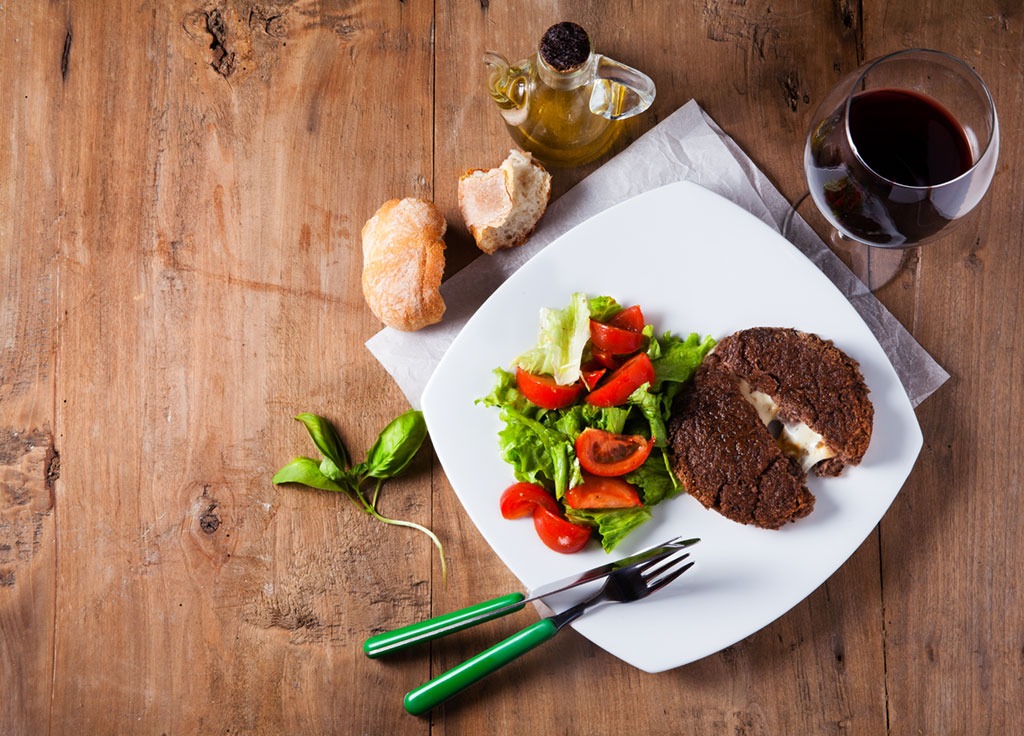
Q: What’s better for you: a turkey burger or a sirloin burger?
“While many people believe turkey burgers are the healthier choice, that’s not always the case—especially when you’re eating it at a restaurant,” says Schapiro. “Oftentimes, restaurants use ground skin and dark meat in their patties to save money. That can add a considerable amount of saturated fat and calories, making the sirloin the better choice. However, if you’re making the turkey burgers at home, both lean ground beef and lean ground turkey breast burgers are good picks.” Here’s why: They’re both sources of protein and contain essential nutrients, like selenium, niacin, B6, and zinc, a mineral that promotes immune function. Remember: Generally, the worst part about having a burger is not the patty itself. It’s the bun and all the other things added in between. Whether at home, at a restaurant, or a fast-food joint, stick to a single patty and nix the mayo, bacon, processed cheese, and fried onions. You might also consider taking off the top bun and eating it open-faced style or ditching it all together.
15

Q: Between maple syrup, honey, table sugar, or agave, which is best?
“At the end of the day, it’s all sugar, but I like honey and maple syrup best because they offer some nutrients,” Smith tells us. “Maple syrup is rich in antioxidants and honey has antiviral and antibacterial properties. They give you more bang for your caloric buck.”
16
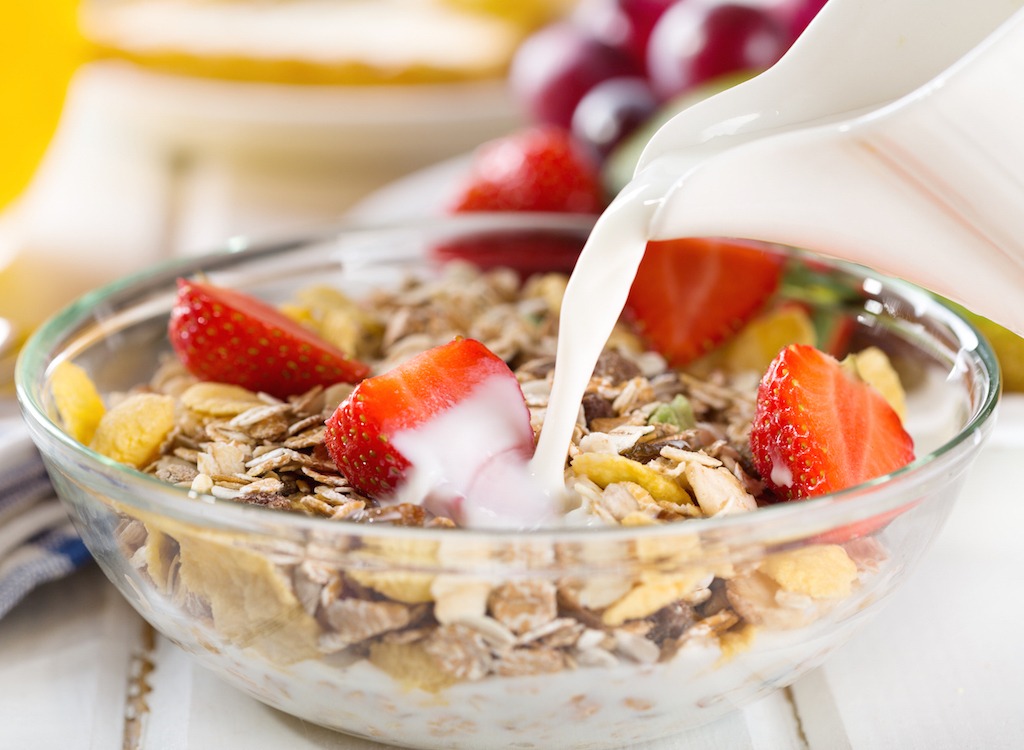
Q: Some studies say that diets high in saturated fats can cause inflammation that leads to obesity. Other studies, however, show that full-fat foods like dairy and yogurt can reduce the risk of obesity. So, what type of dairy products should we be eating? Low-fat or full fat?
“Research is constantly changing, so you have to know what works best for your body and stick to that. I typically recommend 2% because it’s a happy medium,” explains Schapiro.
17
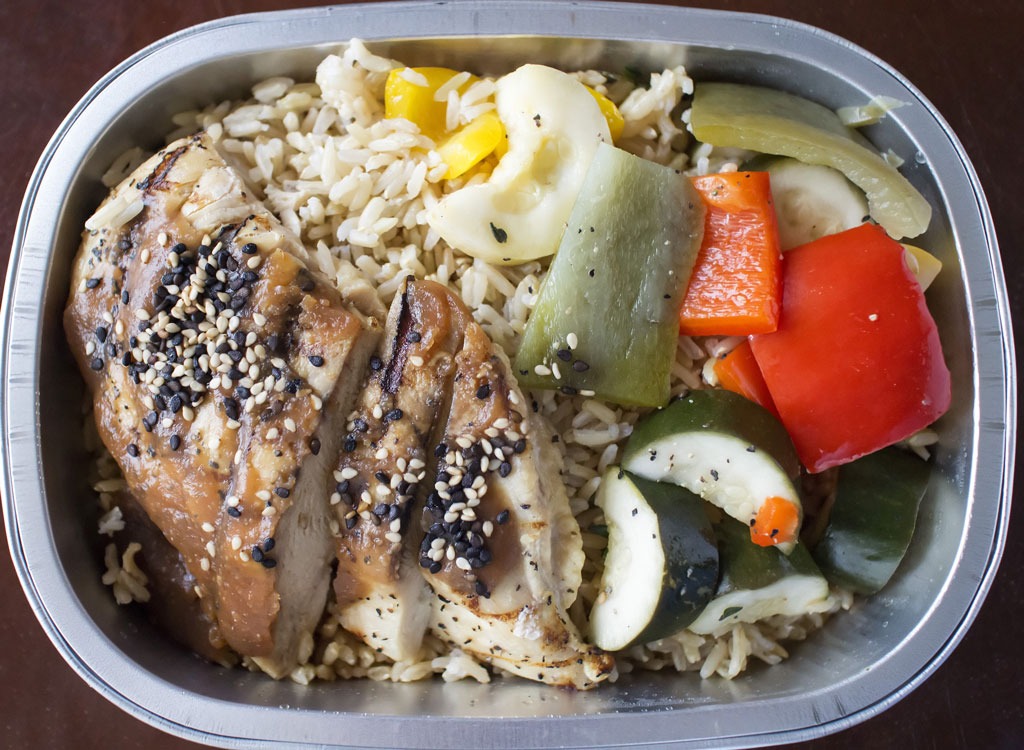
Q: Is it better to keep some frozen meals stocked in my freezer for busy nights or is it better to order in?
“Having a handful of frozen meals tucked into the freezer is ‘insurance’ for those evenings when you’re too tired to cook. Frozen meals can either be items that you’ve prepared in your own kitchen (think soup, chili or any of these 20 Healthy, Amazing Freezer Meals to Lose Weight or commercially prepared frozen dinners that include a veggie. Either way, your dinner will be portion-controlled and fairly well-balanced, which is not guaranteed with take-out food,” explains Palumbo.
18
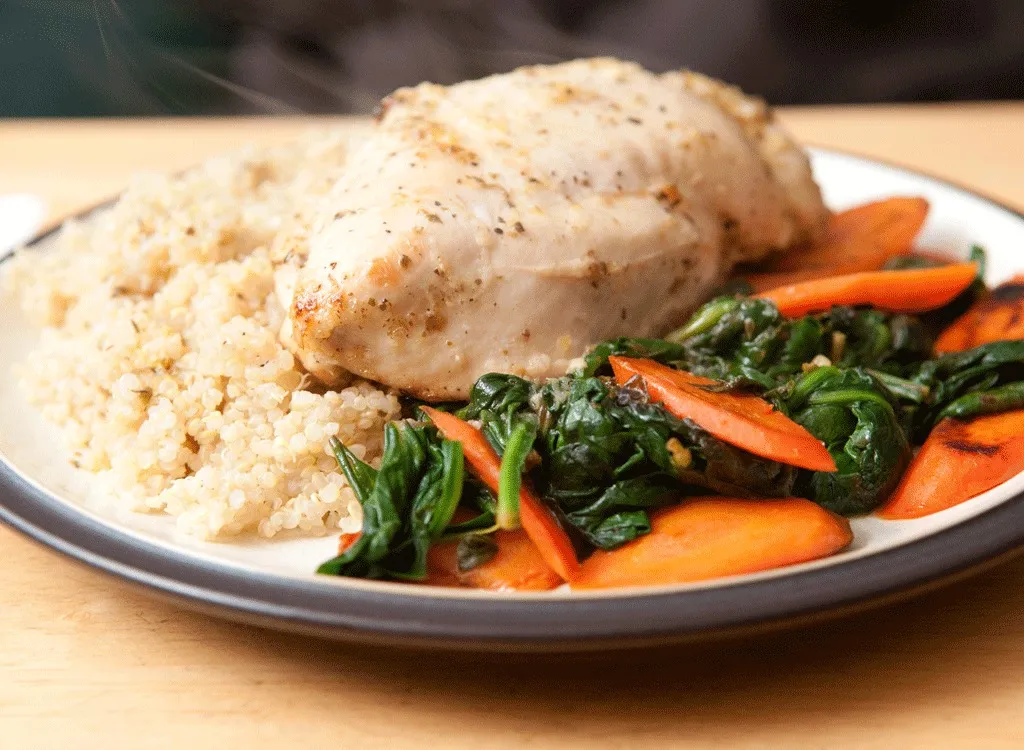
Q: Counting calories and weighing my food is too difficult and unrealistic. What can I do instead if I want to lose weight?
“I agree! When I need to lose a few pounds, it’s too much of a bother for me to count calories or measure food,” says Palumbo. “Instead, I’ll aim to eat about one-third less than I generally do. (You can do this by leaving some nibbles behind on your plate at each meal.) This way I can still enjoy my favorite foods, and if I eat slowly, I still feel as satisfied. I also cut out the sweets such as cake, candy, cookies and sweetened beverages.” Palumbo also recommends maintaining a 12-hour fast between dinner tonight and tomorrow’s breakfast if trying to lose weight. “Research suggests this helps prevent and even reverse weight gain,” she says.
19
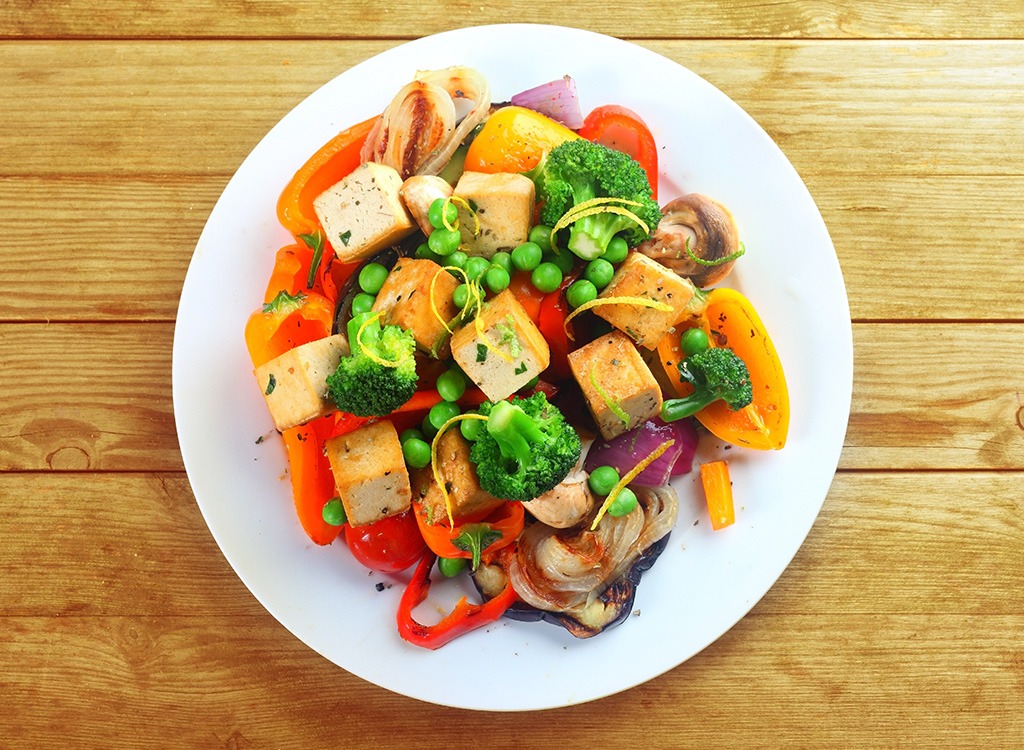
Q: I know eating healthy foods like fruits and veggies can help me lose weight, but they often leave me bloated. What can I do?
“Fruit is high in fiber, so sometimes eating too much can cause bloating and discomfort. To deflate the paunch, stick to about two or three servings of fruit per day. One apple, one orange, a half-cup of berries and one cup of melon all equal a serving,” explains Schapiro. “As for veggies, know which ones tend to bloat you. Some typical offenders are broccoli, cauliflower, and Brussels sprouts. Less-bloating veggies are string beans, asparagus, and sautéed spinach.” Finally, don’t consume too much at once, and don’t wait until you are starving to eat. When we let ourselves get too hungry, we tend to eat too fast, which can create gas and bloat because we suck more air in as we eat, literally inhaling both our food and air!
20
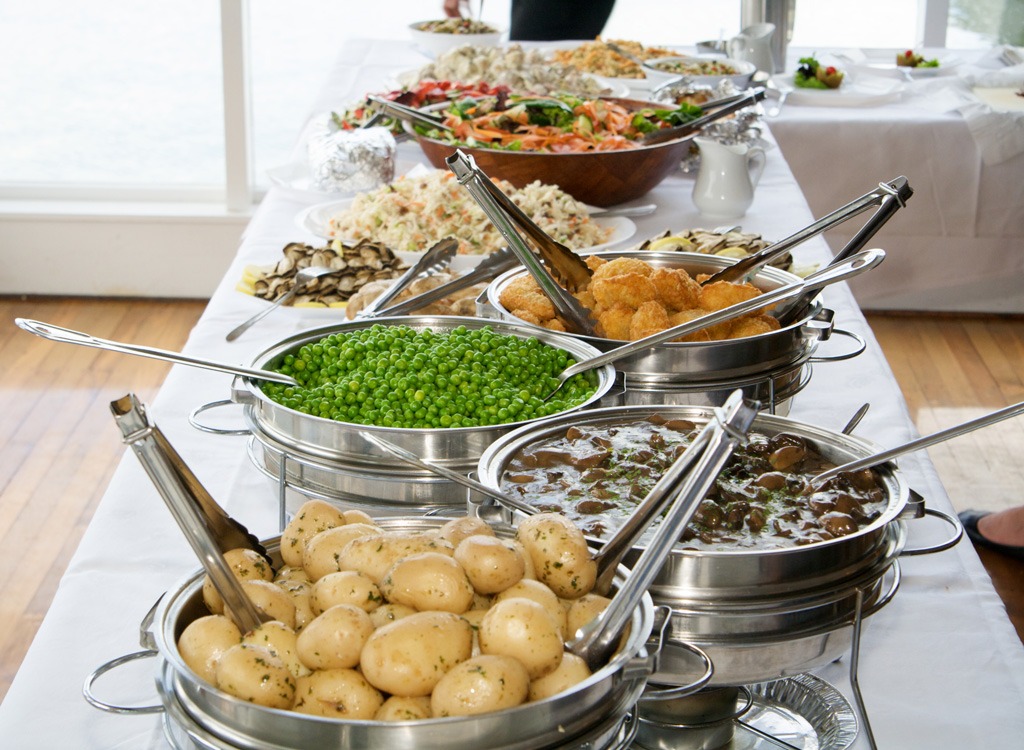
Q: I’m self-conscious about my clean eating plan, which makes it really hard for me to stay on track with at social and work events. What do I do?
“The social pressure to indulge like those around us is mostly in our minds. Once we can move beyond the idea that we’re the odd man out, it’s usually clear that there are plenty of ways to stay on track,” says Miriam Jacobson, RD, CDN. Some of her go-to party tricks: “Have either a drink or something to eat in your hands at a given time—not both.” Eat slowly. Engage with those around you instead of putting too much of your focus on the food. Gravitate towards the vegetable dishes and keep your plate structured as you normally would: half vegetables, a quarter protein, and a quarter healthy carbs. “Trust me, people will be focused on having fun, not dissecting what you eat,” she adds.
21

Q: How can I tell if my olive oil is legit? I’ve heard a lot in the news lately about most of the stuff being fake or low quality.
“If you can’t go to a specialty olive oil store, the best thing to do is read labels and look for quality seals,” advises Palumbo. “The USDA Quality Monitoring Program, the North American Olive Oil Association, the California Olive Oil Council, and the Extra Virgin Alliance will only lend their name to legit products. Lately, I’ve been buying several different extra virgin olive oils (one of the 20 Best Full-Fat Foods for Weight Loss!) from Trader Joe’s.”
22

Q: Do I really need to eat something special before or after I exercise?
“What you consume prior to and after exercise all depends on the time and intensity of your workout,” says Palumbo. “If you’re working out for an hour or less, all you really need to do is ensure you’re adequately hydrated beforehand and have a big glass of cool water afterward. If you work out for over an hour, then you’ll want to have a complex carbohydrate a half hour beforehand, such as a half peanut butter and banana sandwich. Then, after you complete your workout, consume some carbohydrates (such as an 8-ounce glass of low-fat chocolate milk) that will help replenish your muscles’ depleted energy stores.”

